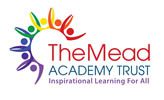The Curriculum: Music
Music is a universal language that embodies one of the highest forms of creativity. A high-quality music education engages and inspires pupils to develop a love of music and a deep understanding of the elements that underpin it. As pupils progress, they develop a critical engagement with music, allowing them to compose, and to listen with discrimination to a wide range of musical styles and genres. Musical skills are taught in such a way that all children can access and apply them, regardless of musical background and previous experience. There are regular performance opportunities across the year, including Young Voices, Christmas Performances and the Whole School Show.
At The Mead and Castle Mead music is planned and delivered by a music specialist teacher. At River Mead music is delivered by class teachers who use the music scheme ‘Charanga’. Both schemes are based around the sequential development of musical skills, with singing at the core, that enables children to become well rounded musicians. Using the Model Music Curriculum as guidance, the scheme focuses on four key areas of musicianship:
- Singing
- Listening
- Composing
- Performing/Instrumental performance
Each of these key areas are recognised as equally important aspects of musicianship, which are connected and interdependent. These key areas form a firm foundation of musical understanding, and provide the context in which the interrelated dimensions of music can be explored. Each lesson is structured to include discrete pitch, rhythm, pulse and listening activities, as well as building a repertoire of songs, and a main activity which usually focuses on composition or performance.
Music belongs to everyone
Intent, Implementation, Impact
Find out more about our approach to the intent, implementation, and impact of teaching Music
